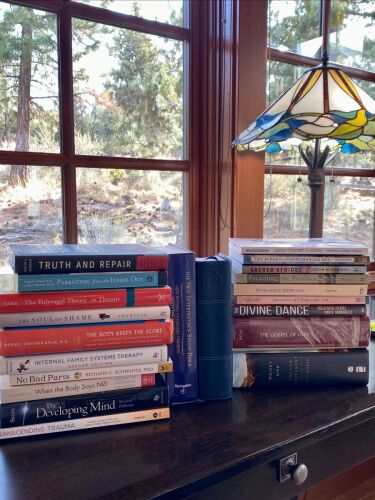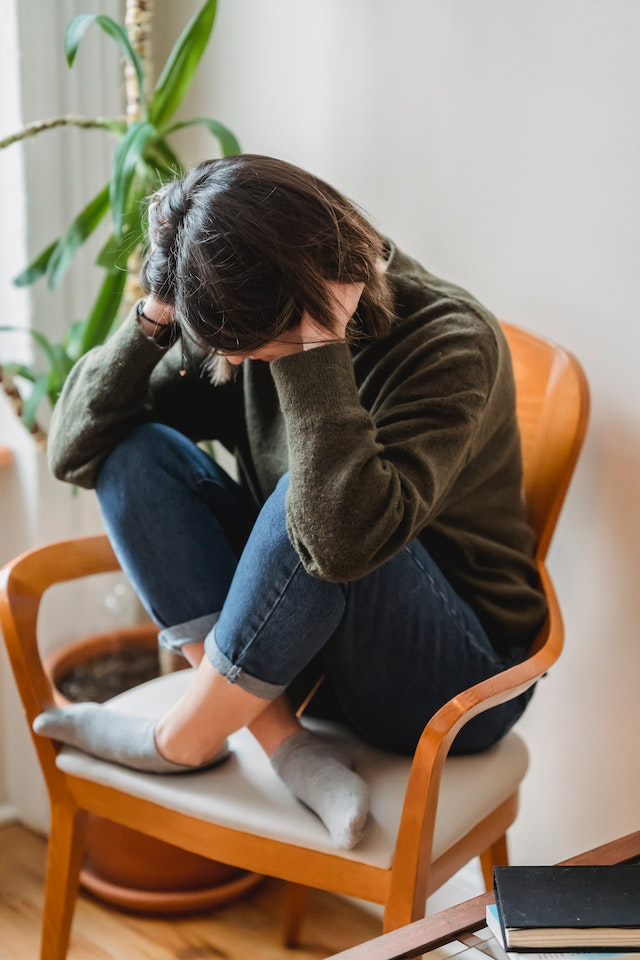 How would you feel if you had urgent information you believed would keep someone safe, and every time you tried to share it, you were dismissed and disrespected? If your sense of urgency was rooted in the belief that something terrible would happen if you didn’t speak up, I’m guessing you would raise the volume, maybe jumping up and down to get attention.
How would you feel if you had urgent information you believed would keep someone safe, and every time you tried to share it, you were dismissed and disrespected? If your sense of urgency was rooted in the belief that something terrible would happen if you didn’t speak up, I’m guessing you would raise the volume, maybe jumping up and down to get attention.
This is how your inner critic feels when you’re about to do something risky, something that could lead to criticism, and ultimately, to feeling shame. Your dedicated inner critic is a member of your risk management team who hopes to avoid shame by controlling your choices.
Learning something new feels risky to your inner critic.
Several years ago, I decided it would be fun to learn oil painting. It made no sense because I had no artistic background whatsoever! Most art programs require pencil drawing and a few other steps before they’ll let you touch oils, but I found one instructor who confidently told me, “I can teach anyone to paint.” I was elated after the first class. I had a canvas with some paint on it! Over the next few weeks, she guided us in creating a scene with the sun shining through trees. I had very low expectations for the outcome and was delighted that my painting even remotely resembled the teacher’s.
My inner critic was slumbering during the first class, but she woke up cranky and opinionated and was on the job for the next few months. She compared every shape, brushstroke, and color choice and found something to criticize. I heard, “What made you think you could do this?” and, “I told you so” when I could not translate some element of the subject onto the canvas.
Most of what you hear about how to deal with your inner critic is wrong.
If I’d been listening to what most people advise, I would have challenged my inner critic, telling her she was a liar and a control freak. I would have treated her poorly, feeling justified because she was mean.
Thankfully, I started oil painting after I discovered the Internal Family Systems (IFS) model. I knew my inner critic was a member of my inner family who had a positive intention, despite her nasty strategies. I also knew she was driven by fear – fear that I would be swamped with shame if I wasn’t good at something.
Inner critics are a standard member of the inner family because everyone has experiences, particularly in childhood, of being criticized for falling short. A teacher uses our homework as an example of what not to do, a parent overreacts when we break a rule, or a coach asks why we bothered to come to practice if we aren’t going to try harder. These experiences provoke shame. Sometimes one intensely shameful incident is sufficient for a member of the inner family to take on the job of inner critic. The goal is to criticize you before anyone else has a chance. Whether it’s one awful experience or a series of “minor” experiences, if there’s enough shame lurking in your system, you can bet you’ll hear from an inner critic. The critic is aware of the shame you carry and afraid you’ll be overwhelmed by it if you take a risk.
If you befriend your inner critic, learning something new can be fun!
Oil painting with no artistic background is risky! I was a beginner in every way. I couldn’t draw shapes, mix colors, select brushes, or compose a scene with the proper perspective. This is a red alert situation for an inner critic! But because I knew she meant well, I understood why she was so reactive. I offered appreciation and reassurance, which helped her relax. The more she trusted that I would be okay, even if my paintings reflected my novice skills, the more creativity and confidence I had about the process. I even felt joy in the small victories of mixing a shade that was precisely what I wanted or capturing an element of a scene.
Befriending your protectors helps them realize they are not alone. They have you, the leader of the inner family, with your resources such as creativity, clarity, and courage to draw upon to meet your challenge. You might just find yourself starting something new, taking the risk of being a beginner, playfully and exuberantly putting paint onto your life’s canvas.
P.S. I painted this the first year I took classes. My critic would tell you it’s “tight” and there are some issues with value (how light or dark the paint is in certain spots). I say, “Thank you for showing me where I can improve and, if you’ll relax, we can enjoy the fact that this painting captures one of my favorite places on earth, the Deschutes River near Bend, Oregon.”




I love this! Your painting is beautiful! And your story of befriending your inner critic enough to allow yourself to fully participate in the oil paining is so inspiring!
Thank you, Camden!
Hello, fellow Hope Writer. Saw this post on the Friday shares! I really resonate with this…my own inner critic is profoundly powerful, and rarely shuts up. She’s relentless and I give in to her way more than I’d care to admit. She’s a bully, though we’ll intentioned, as you point out here. Thank you for this perspective on what’s going on inside my head and why!
Hello Amy! So happy this is helpful. I hope you and she become good friends. 🙂
I’ve re-read this post today and was inspired yet again to deepen my friendship with my inner critic. Given my family background, she had a very loud voice though not quite on the scale it was. However, I currently feel quite stuck in my writing and, for now, have abandoned the art classes and practice at home.
Thanks for reaching out, Heather. I’m glad you’re encouraged to continue befriending your inner critic. I hope she’ll relax over time, giving you access to creativity. Best wishes!